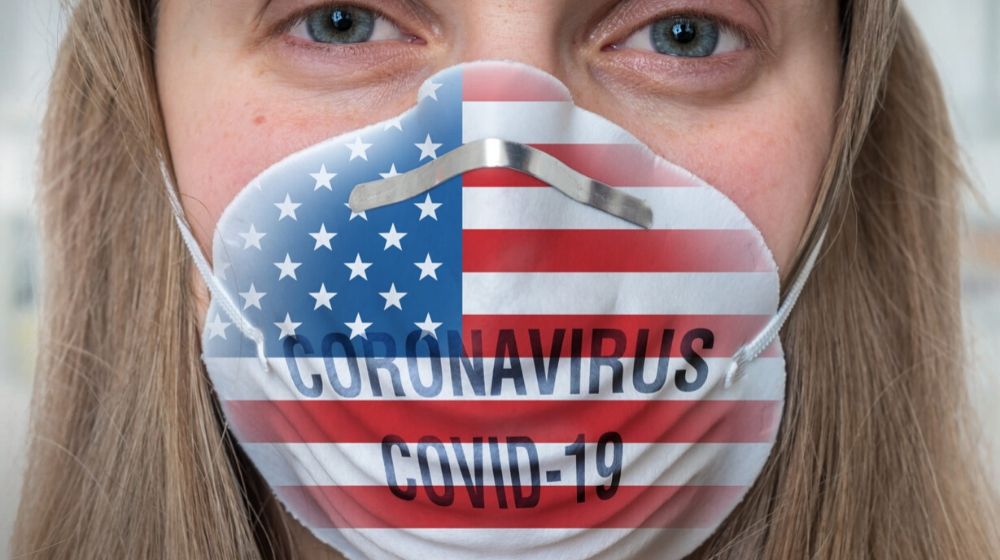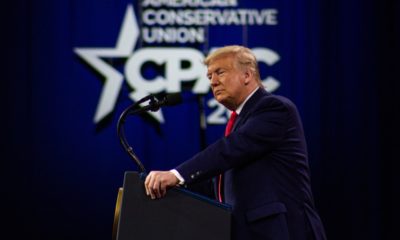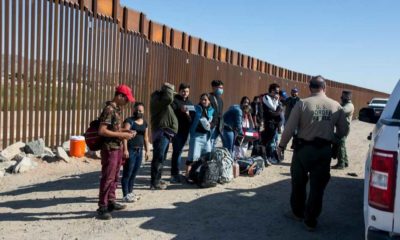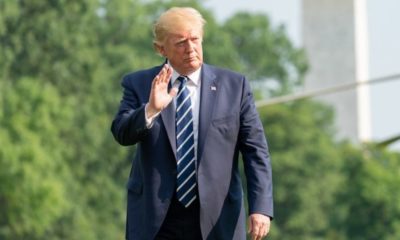Breaking News
U.S. Government Gears Up To Fight Coronavirus

After a few days of political back-and-forth between Republicans and Democrats, the House agreed on an $8.3 billion emergency funding package for the country’s coronavirus response. Now, it’ll go to the Senate for a final vote.
Earlier in the week, the Federal Reserve cut rates by half of a percent to soften the virus’s impact on the economy. However, can these initiatives really save the country from the possible health and economic implications of contagion on U.S. soil?
The aforementioned spending includes generous allocations of cash to equip the nation’s coronavirus response. Originally, the White House put forward a much skinnier $2.5 billion funding proposal, but after several days of negotiation, the final bill included significant spending increases across the board.
The spending bill provides $3 billion for developing treatments for CoVid-19 and it sends another $2.2 billion to the Center for Disease Control and Prevention to assist the agency with its containment efforts. Over $1 billion will go overseas to combat the global outbreak, and $20 million will be used for administrative expenses relating to loans for U.S. businesses.
Republicans initially resisted the major increase in spending that was mostly pushed forward by Democrats. When Trump’s original proposal came to Congress, House Democrats sensed an opportunity to criticize the president and quickly came out to criticize the effort.
Senate Minority Leader Chuck Schumer (D-NY) made a statement that the administration’s response was based on “towering and dangerous incompetence” and said that at least $8 billion was needed to successfully combat the threat. Republicans initially resisted the demands for an unsubstantiated spending increase, but yesterday, the bill passed resoundingly with 415 supporting votes and only two Republican representatives voting against it. President Trump has stated that he will sign whatever spending bill is approved by Congress.
President Trump appointed Vice President Mike Pence as the point person to lead the United States' response to the ongoing coronavirus outbreak, saying that the U.S. is “very, very ready” to fight the virus. https://t.co/ZhLJ02tTCH
— Pittsburgh Post-Gazette (@PittsburghPG) February 27, 2020
Meanwhile, the Federal Reserve surprised Wall Street this week with an unexpected emergency interest rate cut on Monday. The central bank slashed rates by 50 basis points to mark the rate cut since the 2008 Financial Crisis. Now, the Fed’s benchmark rate hovers in a range of 1 percent to 1.25 percent.
Federal Reserve Chairman Jerome Powell spoke at a press conference soon after the central bank announced its decision. “The virus has afflicted many communities around the world, and the outbreak has also disrupted economic activity in many countries,” said Powell, “The virus and the measures being taken to contain it will surely weigh on economic activity, both here and abroad, for some time.” The market seemed to breathe a slight sigh of relief once the rate cut was announced, but many experts question whether monetary policy adjustments are an effective response to a viral outbreak.
The rate cut optimism wore off quickly on Monday, and it didn’t take longs for stocks to plunge back into the red. The day after the cut was announced, the Dow closed the Tuesday’s session down over 800 points.
Most experts agree that the Fed can’t fix the sell-off in stocks. Instead, the market is more likely to focus on updates of possible treatments and outbreak statistics. Pharma firms are working overtime to come up with a possible vaccine for the virus and any good news in the area could significantly relieve the pressure on the market.
The spending bill approved yesterday also includes $300 million for the purchase of vaccines and other therapeutics so, if a treatment comes, the government will have the financial firepower it needs to distribute it to the masses.
It’s hard to gauge the impact that Co-Vid19 will have on the country and the economy, but the federal government is clearly taking the threat seriously. Between the Federal Reserve’s quick response and the bi-partisan support for a generous funding package, the crisis has prompted a level of cooperation that hadn’t been previously seen during Trump’s presidency. It would be nice if this could prompt more cooperation on other long-standing issues, but with a presidential election right around the corner, the good vibes probably won’t last long.












